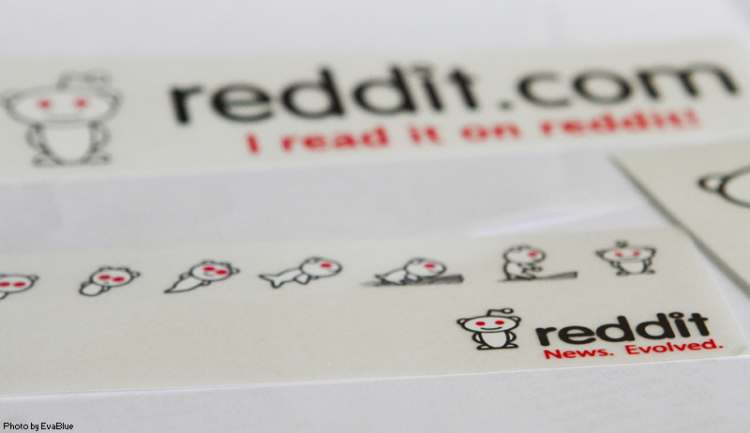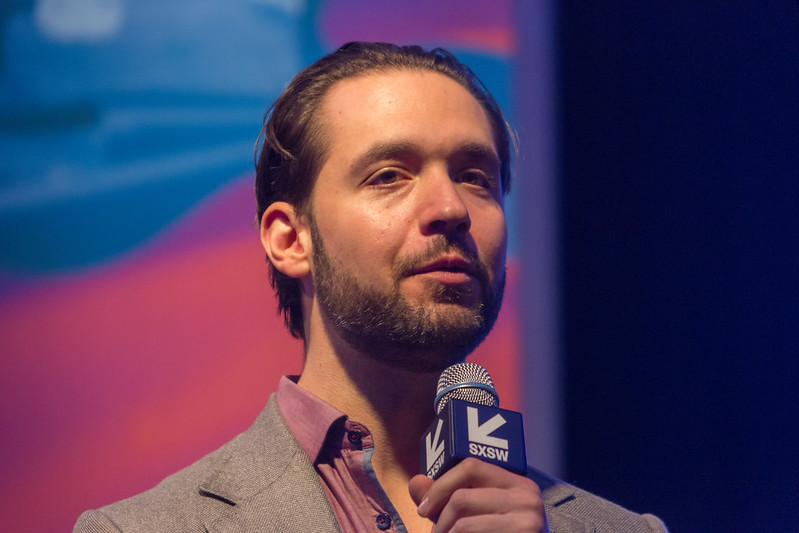Reddit: the Internet's City Hall

"How is Joe Biden as a president, really?"
"What poison is most effective against bed bugs?"
"Martin Parr."
"Rohmer influencing Linklater."
"Our current education system is s**t and needs to change."
Lo these mantras of unbridled online discussion, provided you tag on “Reddit” to the tail end in the search bar.
The question of Reddit’s identity is a complicated one, a grounded definition even more so. The site's origins begin when college roommates Steve Huffman and Alexis Ohanian, who attend a lecture of Paul Graham’s in Boston Massachusetts, pitch to him the idea of My Mobile Menu, a service allowing users to order food via SMS text messaging in ye almighty days of the Blackberry. Graham, an entrepreneur known for his investment in tech startups, invites the two to his startup accelerator Y Combinator, but ends up rejecting their proposal.
“We still don’t like your idea, but we like you two. If you change your idea, we’ll invest,” Graham tells Huffman and Ohanian.
Taking inspiration from sites Del.icio.us and Slashdot, Huffman and Ohanian come up with an idea for “the front page of the internet”. The two secure funding from Y Combinator, and Reddit is then coded and launched publicly in June of 2005 with a sly push from Graham who published an essay with Reddit’s link attached to it. That initial traffic through the site, what was essentially readers of Graham, would go on to set the tone for what the site meant to be. Reddit is then quickly acquired by Condé Nast Publications (owner of Wired) in October of 2006, before being moved out from under Nast Publications to become an independent subsidiary of Nast’s parent company, Advance Publications in 2011.
Alexis Ohanian, one of the founders of Reddit (Image Credit: Creative Commons/nrkbeta)The original function of Reddit was supposed to serve as a liaison of sorts. The idea was to create a bulletin board of online content; users would submit news articles and journals from major publications and outlets to a unified space so that quality content earned prioritized visibility. The arrangement is based upon the number of upvotes and downvotes a post receives with respect to its age — this means without a continuing influx of upvotes or downvotes over time, a post’s relevance and thus promotion would decline.
In 2008 subreddits were introduced to the platform. A subreddit essentially is a community formed around a specific topic wherein users hold discussions, share content, and ask questions in relation to that topic. The compartmentalization gives coherence to online discussion, designating Q&A’s, game guides, mathematical troubleshooting, film reviews, and questions about the Toyota AE86, with relevance, to functional spaces. The other outlier: those communities are moderated by users themselves — as long as they created the subreddit, or were admitted by another moderator.
Where other platforms like Twitter, Instagram, and Tik Tok regulate, alter, or censor content via company action, Reddit for the most part makes its bed and sleeps in it. The transparent relationship between the platforms users and owners is a defiant anomaly in the quickly consumptive landscape of social media. With video and image-based platforms dominating online rhetoric and staking deep on sensationalism, Reddit’s versatile space for discussion on all things remains crucial for elaborating the rights and definitions of a kind of digital citizenship.
Users on Reddit range from u/Poem_for_your_sprog, who responds to messages and comments in lyrical verse, to u/forthewolfx, a user who became famous on the site for, quite literally, asking to become famous; the community made it happen. The platform is an engine for agency, and for better and worse, has been a prominent force for much political and social change — a double edged sword in the case of anonymity.
Before June of 2015, a controversy boiling point, Reddits owners took relatively little action against the crude content and subreddits circling the platform. But their initial defense of free speech, was rolled back only a few months later with the implementation of a new harassment policy. Then, following in July, and amid ongoing efforts to tame the site, it came out under then CEO Ellen Pao, the site's director of talent, employee Victoria Taylor had been fired. Taylor served as an intermediary between moderators of specific subreddits and was notable for her aid in organizing the interviews for the AmA sessions — a subreddit where interviewees answer questions by redditors and commenters across the internet — featuring well-known figures like Barack Obama and Bill Gates. Major subreddits shut themselves down in protest as a result, and subsequently petitioned for Pao to resign from her position as CEO. The petition reached over 200,000 signatures and Pao was eventually replaced by founder Steve Huffman who returned to the position after a 5 year hiatus.
Although the rebellion might have sprung from a rotten point the backlash was totemic for its representation of user influence and loyalty.
A similar reaction took place this year, when Reddit announced that it would start charging third party developers for its API. Popular apps like Apollo and Reddplanet, which depend on the API to power their apps, serving as essentially an independent interface to Reddit’s content, have since been shut down due to the sudden and unreasonable increase in pricing. Another blackout, one you may have been familiar with, ensued on June 12, and saw as many as 8,500 subreddits going private or restricted for 48 hours, with a little over 3000 staying dark through June 20.
Reddit's response was threatening; they'd start removing moderators and reopening subreddits, using the platform's long-established Code of Conduct as a loophole. The Code cites action in the event a moderator should abandon their community or keep private a community whose majority of users wish to keep open. Some moderators have in turn acquiesced but in loopholes of their own. The Steam subreddit, dedicated to the gaming platform has now found a new dedication to steam-powered engines. Other subreddits reopened, marked as NSFW, prohibiting Reddit from running ads and thus turning profit.
That balance between free speech and malicious content is an ongoing battle in both Reddit’s digital space and outside, through our front doors. Significantly less than before, questionable content still exists on the site. One subreddit, r/truerateme, has users post pictures of themselves to be rated based on “objective factors, such as harmony, sexual dimorphism, symmetry, and quality of their features”. Another r/FemaleDatingStrategy is a subreddit designed to help women “take control of their dating lives,” featuring digital handbooks, and step-by-step guides, and overall slides down a near-vertical slope to male crucifixion.
For the same reasons the site sees controversy, Reddit serves as a unique example of a part of the internet nearly governed by users. Its differences from other heavy hitting social media give versatility to voice and ear, function to discourse, and steadfast ground to our self-evident rights and values, continually being re-examined under the axis of our investment in a virtual future.
All quick tips, fixes, quips, and pics of John Oliver therein hold true!








